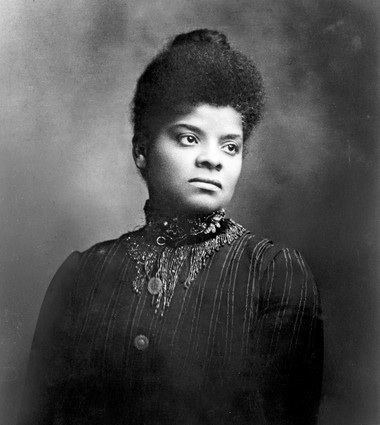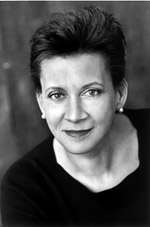
“A Winchester rifle should have a place of honor in every black home, and it should be used for that protection which the law refuses to give. When the white man who is always the aggressor knows he runs as great risk of biting the dust every time his Afro-American victim does, he will have greater respect for Afro-American life.”
If Ida Bell Wells (1862-1931), above, had never written another word in her entire life, she would have been the object of my supreme ancestral regard merely for those sixty, above. Composed when she was about thirty years of age, the text, from her 1892 pamphlet, Southern Horrors: Lynch Law in All Its Phases, still simmers over a hundred years later with the nostril-burning scent of bitter defiance.
Keep in mind, however, that Wells was not describing some kind of abstract notion of a second amendment embrace, but penning her ideas when there was a literal price on her head. The definitive leader of her era in a wildly underpowered crusade against the lynching of Black people, Wells and her jagged prose sent entitled racists into spasms. Documenting their morbid outrages as a journalist, she inevitably had to leave for the North, merely to keep from becoming another prized lynching victim herself.
I read her words for the first time in the mid ’80s, in college, in a book titled When and Where I Enter: The Impact of Black Women on Race and Sex in America, by Paula J. Giddings. At the time, South Africa was raging. Black New Yorker’s were being killed, seemingly with wanton disregard, by New York City police while an indifferent mayor, Ed Koch, wagged his finger at us.
I was looking for a functional political position that made humanitarian sense, but that had some teeth in it. Needless to say, Wells not only fit the bill, but lit my brain up, and sent me back to the stacks. There, I learned that Black radicalism was not new or recent, but a legacy response to racism.
 Needless to say, Wells changed my life, but not as much as she did Giddings’, right. Indeed, the Elizabeth A. Woodson 1922 Professor in Afro-American Studies at Smith College says that, even with the abundance of astounding characters in her book, Ida kept speaking to her, from the mists of history, beckoning for a volume of her own.
Needless to say, Wells changed my life, but not as much as she did Giddings’, right. Indeed, the Elizabeth A. Woodson 1922 Professor in Afro-American Studies at Smith College says that, even with the abundance of astounding characters in her book, Ida kept speaking to her, from the mists of history, beckoning for a volume of her own.
As my mother always said, listen to your elders. Giddings’ follow-up to When and Where—Ida: A Sword Among Lions: Ida B. Wells and the Campaign Against Lynching—is a masterful, 800-plus page tome that, no doubt, will be the definitive record of Wells’ life and work for decades.
Paula J. Giddings is my hero, too, and the guest today on my WBAI-NY / 99.5 FM radio show, NONFICTION, this afternoon, Friday, January 1, at 2 pm ET. Indeed, our conversation was so rich and bountiful it wouldn’t fit into one broadcast. Look out for the second part, soon, on a future date.
For now, you can hear Part I by tuning in at 2 pm. If you’re outside of the New York tri-state, check out our live stream on the web. If you miss the live show, dig into our archives for up to 90 days after broadcast.

1 comment so far ↓
Kudos to you, Mr. Allen for broadcasting this far and wide.
She’s my hero too! (And, I’ve admired your work since your PE days) Her story is RIPE for a major biopic…
Leave a Comment